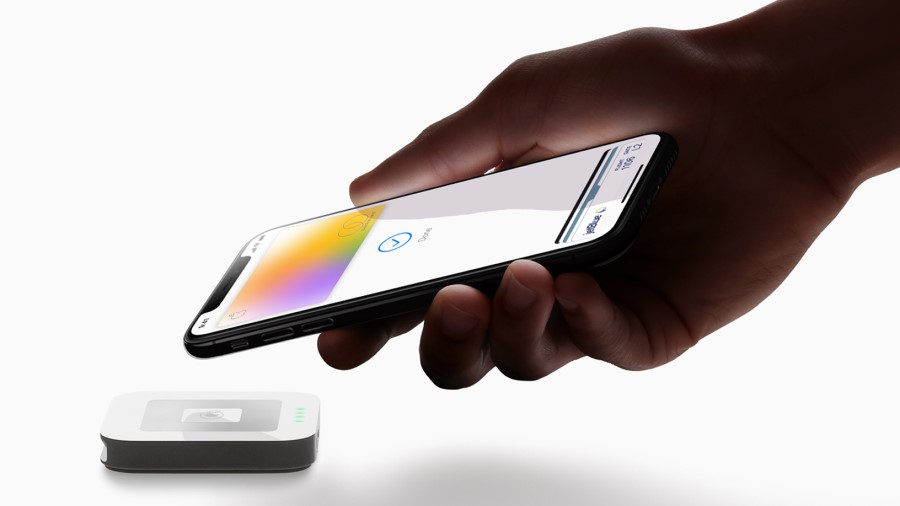Ignoring Apple’s new credit card could cost reward and benefits professionals dear

We could be about to find out, as this month, Apple launched its first credit card. The technology giant already has a foothold in finance through ApplePay, its digital wallet service. But the credit card is its first venture into ‘traditional’ financial services.
Others will be better placed than I am to comment on its merits as a consumer credit card. I am more fascinated by what Apple’s card means for the personal finance market – and by association workplace reward and benefits.
Tools and transparency
Apple uses its Wallet App to manage the card alongside ApplePay. As might be expected from a tech provider, this is where the biggest difference from other financial products lies. If you choose not to pay off your full balance every month, Wallet can show you what that means for future repayments, together with colour-coded warnings about escalating interest rates. Spending rewards are paid back into the users Wallet every day, and the App can also provide ‘nudges’ on how to reduce spending.
Everything you spend is categorised and recorded in detail, to the extent of showing exactly where you bought each item (you can see these on a street map), and when.
Some of this is not unique – Monzo Bank already lets its users see a breakdown of their spending by category for example – but a credit card that helps users understand the impact of not clearing their balance and offers nudges about how to pay it off, is.
The direct link between financial guidance (through nudges) and an individual’s borrowing patterns could also open up new avenues for supporting staff with financial wellbeing. And, why would employees not expect the same transparency and ease of use from their workplace financial benefits as well?
Future finances
The credit card is a collaboration with Goldman Sachs (which handles transactions) and Mastercard (which provides the platform). Could Apple form similar partnerships with others in the future to launch ISAs or pensions, for example?
That would open up possibilities, such as paying daily cashbacks directly into a pension. Again, that’s not entirely new. The Moneybox App rounds up purchases into a stocks and shares ISA, and others services such as Plum also offer savings ‘jars’.
But none of them has the reach of a billion-plus customers. If a quarter of Apple’s 1.3bn user base saved £1 each week, that’s almost £17bn of assets under management in a single year. That is a hugely lucrative opportunity for a financial services partner working with Apple.
It could also mean being able to see your pensions and ISA savings alongside your credit card balance and other, as yet undefined, financial services in a single place. An overview of your wealth, every single day, on your phone.
Employees might start to wonder why they can’t have their workplace pension paid into their Apple Wallet as well, where they can see it alongside their other financial products.
Patterns in data
The iPhone, and other types of smartphone, offer almost limitless potential for finding patterns in different data sets. For example, combining Wallet’s analytical tools with data from an Apple Watch could help make links between our physical, financial and to some extent, mental health. It could show us if we are more likely to spend beyond our means when sleep deprived, or chart the effect of that third mid-morning coffee purchase on our heart rate. That, along with suitable nudges, could provide the basis for helping everyone improve their wider wellbeing.
This is just a flight of fantasy, though. No-one knows if the Apple credit card will take off, or if anyone will be interested in using Wallet to get a grip on their spending habits. Apple might even conclude that financial services aren’t helping it to sell more phones and withdraw from the market.
There are other risks too. Products such as the Watch are not cheap. Access to this brave new world of data risks being only for those who can afford the cost of entry and that could create widespread digital inequalities.
But even if the credit card doesn’t survive, it’s set new standards on what employees come to expect as consumers, and they will want the same from their workplace benefits. Personalisation, integration and ease of use, along with transparency and trust, could become the most important buying criteria for all workplace benefits.
In the future, employees might want to use data from their workplace benefits as part of personal dashboards that belong to Apple or Alphabet (Google’s parent), not the benefit provider. They might expect to take that data with them once they leave an organisation – and to be able to choose their own health and finance benefits providers when they start a new job.
It might be just a thin slice of titanium, but the Apple card could just be the start of a revolution that changes our view of financial services, and by association workplace benefits, for ever.
To find out more about how technology is shaping the future of reward and benefits, come to REBA's Innovation Day on 28 November.
The author is Maggie Williams, content director at REBA






